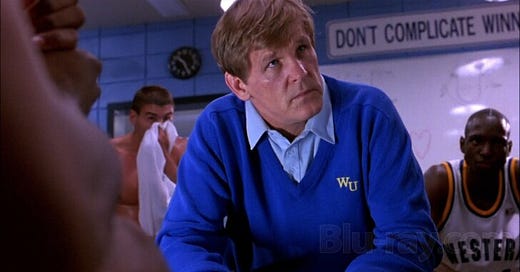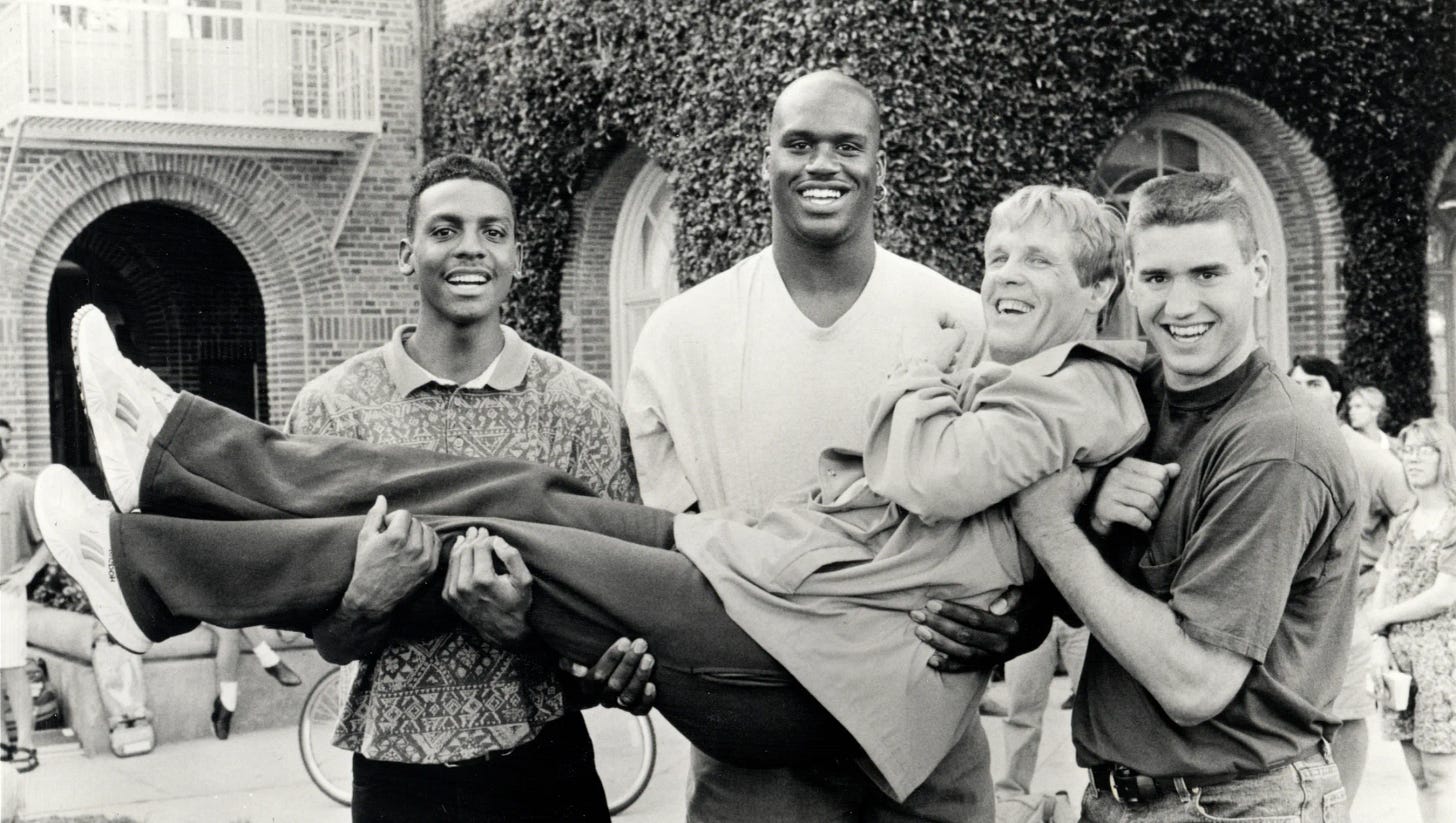‘Blue Chips’ reminds you of Nick Nolte’s genius and college basketball’s greed
It will teach you about basketball, but in a very innovative way.
Every once in a while, Hollywood gets a masterclass director/writer combination. A duo that produces a film that couldn’t have been done by anyone else. Doug Liman and Jon Favreau on Swingers, the late Tony Scott and Quentin Tarantino on True Romance, or anyone who directs an Aaron Sorkin script.
The late William Friedkin and Ron Shelton teamed up for an under-appreciated college basketball film called Blue Chips. Thirty years later, it’s still gathering steam. The title meant what college coaching staffs and schools refer to as a perfect prospect, aka a blue chip.
Shelton was well known for his vault of superb sports films such as Bull Durham and Tin Cup, and Friedkin was a filmmaker who made any batch of action and drama impossible to ignore. They came together to make a movie that will teach you more about basketball and the greedy sectors of college sports that have ruined careers and souls than most movies like it.
Since I’m currently on a wave of 90s flicks at the moment on Prime-most notably a repeated binge of Midnight Run-Blue Chips was suggested to me. For a guy who doesn’t watch much basketball and lacks the care to follow many of its non-star players, it may seem like I’d be the last fella to click on a movie that centers around a celebrated head coach (a searing Nick Nolte) rebounding from his first losing season by making a painful choice with regards to recruitment. But I had watched and thoroughly enjoyed the movie many times before. However, it had been quite some time since it was viewed in full, so why not a standard review?
Nolte’s future Hall of Fame bound and highly respected Pete Bell runs up against the idea of “buying players,” a nefarious endeavor that involves “friends of the program,” aka shady businessmen (the late, great J.T. Walsh) and crossing a line he never even thought about pushing. But when you have studs like a young Penny Hardaway and Shaquille O’Neal standing at your doorstep ready to assemble an NCAA dream team, it’s hard to bypass, especially with the pressures of winning at the college level even back in the 90s.
A large part of the success is due to the energy that is put into the soundtrack during coaching scenes, and the lack of sound in hard-hitting monologues from Nolte’s Bell. Friedkin knows when to rock us with the unconventional sound of the film, and exactly when to take it away so the acting can take center stage. The aforementioned scene revolves around Nolte’s Bell coming clean to the media after a huge win, turning a regular postgame into a bristling revelation of sins and costs.
Nolte always knew how to lower and raise the tenor of his voice, firing off lines of dialogue like a rattlesnake delivered venom. There’s a case to be made that a school would have wanted to hire the actor after seeing how easily he slipped into Pete’s shoes, most likely modeled after Bobby Knight. The late real-life Indiana coaching legend even has a nice role as… himself late in the film. Who else could tell the ref to move his fat ass to get into a better position?
O’Neill is a fun presence as the Louisiana kid who could dunk and reject the basketball. Hearing the sound effects on his dunks gives the film that unique energy. Cheers to Mary McDonnell, whose eyes could burn through steel. Just ask Pete Bell. Nolte and company make it all seem real, turning a sport that I usually hit the snooze button on into a riveting journey.
It also shines a light on the rugged effects of big fortune. The “friends of the program” fuel the cheating, and this has happened often in real life. People making money off unpaid (at the time) college athletes; they got all the riches. Friedkin and Shelton shine a light on the corrupt, and make me want to pick up a basketball.
It’s free on Prime.





